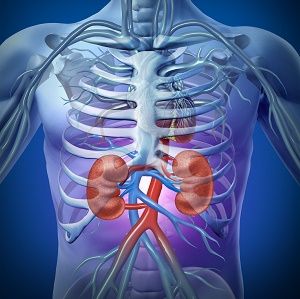Tocilizumab Safe for Treatment of Rheumatoid Arthritis in Patients with Renal Insufficiency
A clinical trial that evaluated the use of tocilizumab for the treatment of patients with rheumatoid arthritis and renal insufficiency found the medication to be safe and effective.

Tocilizumab (TCZ) for the treatment of patients with rheumatoid arthritis (RA) and renal involvement was found to be safe and efficacious in a study published in the Annals of Rheumatic Diseases.
Researchers from various hospitals in Japan observed 371 patients for a 24 week TCZ therapy study in order to evaluate the drug’s efficaciousness and safety parameters. Participants were recruited from the ACTRA-RI study, which already specifically targeted RA patients with renal insufficiency. The patients were divided into 4 groups, according to the status of methotrexate (MTX) use and renal insufficiency. Patients with renal insufficiency (102 participants) had an average age of 71 years, while those without renal insufficiency (303 patients) were about age 58 years.
At baseline, the concomitant use of MTX in the renal insufficiency group was 33 patients. There were 188 patients not using MTX at baseline from the group without renal insufficiency. During the 24 week observation period, 8 patients from the renal insufficiency group discontinued TCZ regimen due to adverse events, while 1 patient discontinued from that group for other reasons. In the group without renal insufficiency, 16 patients discontinued TCZ due to adverse events, and an additional 9 patients discontinued for other reasons. The researchers noted this numbers presented no significant differences in rates of dropout, adverse events, or severe adverse events in groups with and without renal insufficiency.
After the 24 week observation week concluded, the researchers found differences among the groups. However, for example, there were no significant differences in efficacy among the 4 groups. The researchers noted that at week 24, the number of patients with renal insufficiency only taking TCZ numbered 9.8, while patients from that group taking TCZ + MTX numbered 9.9, virtually the same. In the group of patients without renal insufficiency, those taking TCZ only numbered 8.4, while patients taking TCZ + MTX numbered 9.3, which did not present a significant difference.
“In this multicentre study, the 24-week TCZ therapy had good efficacy parameters as well as stable safety and tolerability profiles in patients with RA and renal insufficiency, regardless of MTX use,” the authors wrote. They noted that other recent studies which randomized patients into either TCZ +MTX or TCZ monotherapy groups found there was no clinically relevant superiority of combination treatment over monotherapy, even after up to 1 year of treatment.
The researchers believe TCZ treatment to be a promising option for treatment of patients with RA and renal insufficiency, especially because of the increased number of elderly patients with RA and significant comorbidities, like renal insufficiency, among others.